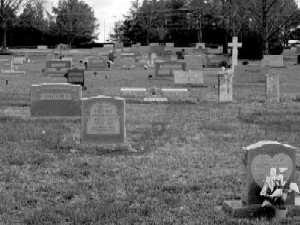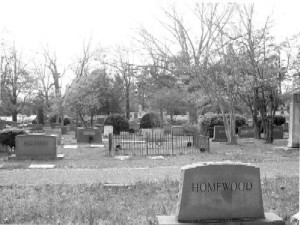| history | landmarks | lifestyles | nature | about us | sources | home |
History |
Mason Farm and Old Chapel Hill Cemeteries |
|
|
Chapel Hill has a number of historic final resting places that can provide another perspective on history from that achieved in the museum or the library. Two such places are the Mason Farm cemetery and the Old Chapel Hill Cemetery.   The Old Chapel Hill Cemetery is probably the more distinguished of the two. This original town cemetery, locatedon what is now the east end of UNC's campus is the final resting place of a great many of the early founders, heroes, and unsung heroes who helped to forge a top-notch university in the heart of the Piedmont. There are also a number of notableuniversity alumni who have been honored with a place in the cemetery. Another aspect of the Old Chapel Hill Cemetery that has drawn attention over the years is that the oldest part of the cemetery is segregated according to race. To learn more about the Old Chapel Hill Cemetery, you can visit the site, "Silent Sentinals of Stone". The story of the Mason Farm is told in the publication "Historic Buildings and Landmarks of Chapel Hill, N.C.": "The Mason farm, southeast of the University campus, is named for the Reverend James Pleasant Mason, and his wife Mary, who was the great granddaughter of Mark Morgan, one of the original Orange County settlers, who donated land to the University. Mary E. Mason inherited half the farm of 1600 acres and this, her husband converted into a valuable property. Meantime, he kept up his services to the various Baptist churches in the countryside near Chapel Hill. He had two beloved daughters, Mattie, born in 1857, and Varina, born in 1861. They died of typhoid fever soon after their maturity. Near the house, their father had set aside a copse of cedars and magnolias, which he converted into a small cemetery with enscribed monuments. Here the daughters are buried and their father followed them in 1893, their mother a year later. They lie within an iron fence below the golf clubhouse. The Reverend Mason willed the farm to the University." [18]. |
All Text and Photos © 2004.